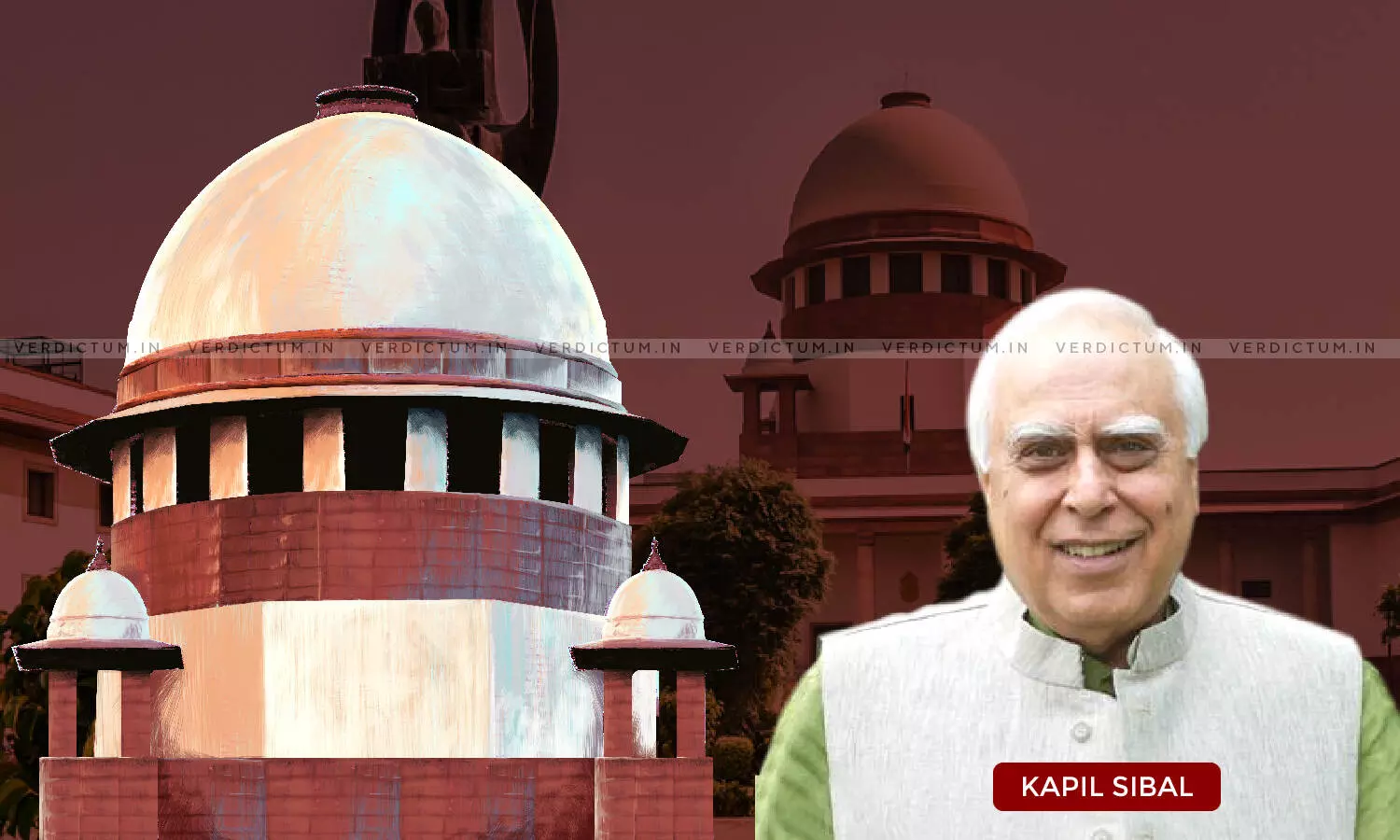
There Is No Concept Of Animal Rights, Law Casts Duty On Humans Not To Cause Unnecessary Pain: Kapil Sibal In Support Of Jallikattu
 |
|Arguing for the state of Tamil Nadu in the plea against Jallikattu, Senior Advocate Kapil Sibal today argued that there is no concept of animal rights under the law. He argued that there is no corresponding right to the statutory duty of humans not to cause unnecessary harm to animals.
"There is no concept of rights of an animal. There is a concept of making sure that in our relationship with animals we follow certain moral norms. The underlying moral norm is - not to cause necessary pain and suffering", Sibal submitted arguing in support of the Tamil Nadu law that permits Jallikattu.
Sibal submitted that it is one thing that the Supreme Court got "absolutely wrong" in its 2014 judgment in the matter of Animal Welfare Board Of India vs A. Nagaraja & Ors. "Not every duty results in a concomitant right or a corresponding right, as a matter of law", Sibal said.
"...PCA Act, therefore, cast not only duties on human beings, but also confer corresponding rights on animals, which is being taken away by the State Act (TNRJ Act) by conferring rights on the organizers and Bull tamers, to conduct Jallikattu..", the Bench of Justice K.S. Radhakrishnan and Justice Pinaki Chandra Ghose had held in the 2014 judgment.
"My duty to respect the national flag, no right is involved. It's my duty under (Article) 51-A. In several of those duties, there are no rights involved" Sibal argued.
"The Judgement in Nagaraj presumes that because there is a duty to ensure the well-being of the animal, there is a right of the animal to demand well-being. No such rights," Sibal contended on behalf of the state.
He said that rights are given by law and that law is made by human beings. He said that rights are of two kinds, against the state, and qua our relationship with each other (fellow human beings) and nature.
"There is no gainsaying that we live in an interdependent world and the evolution of species has demonstrated to us that while we are dependent on animals, the preservation of animals is also very important for our own livelihood", Sibal said commencing his arguments before the Constitution Bench comprising Justice KM Joseph, Justice Ajay Rastogi, Justice Aniruddha Bose, Justice Hrishikesh Roy and Justice CT Ravi Kumar.
"Over centuries my lords, after the origin of species, many species have become extinct. There is a food chain which is necessary for the survival of both animals and man. But there are two kinds of animals, one that are wild animals other are domesticated animals. In the present petition, we are dealing with domesticated animals. The Act deals with both", Sibal said referring to the Prevention of Cruelty to Animals Act.
To domesticate an animal is not an easy job, Sibal said, adding that the very act of domesticating an animal involves pain and suffering.
"My lords, many animals don't see the light of the day. They are captive in cages, only for us on the tables. It involves pain and suffering. Is it necessary, is it unnecessary, I don't know. As we evolve and the law evolves, that question will be answered one day", Sibal said.
"But the important part is that the Act deals with unnecessary pain and suffering. My first proposition is domestication of animals is itself painful and the animal suffers. What is prohibited is unnecessary pain and suffering", Sibal argued.
"Secondly, my lords, we are dealing with the rights of private individuals who own these animals. We are not talking about state action here but state action in the context of Entry 17 (of list III). But ultimately, it is to regulate the conduct of human beings qua animals. That is the focus of the Act. To regulate the conduct not of the animals but to regulate the conduct of human beings", Sibal submitted.
Sibal continued, "The third element which is necessary for your lordships to consider is that the moment you have a legislation called prevention of cruelty to animals, there is a legislative presumption that is an existence of cruelty. It is to prevent cruelty that the legislation has been elected. There is a legislative presumption".
Therefore to prevent cruelty, the law has been enacted, he said adding, "The underlying principle in the legislation itself is that domesticated animals are subjected to cruelty".
He said that there is a particular culture in France where they feed a particular bird to keep it in a cage till it bursts and then they have it on the table. "One thing I agree is that animals are sentient animals they have sensitivity, they suffer pain, no doubt about it. All animals suffer pain when they are domesticated" he said.
Kapil Sibal was arguing in support of the Prevention of Cruelty to Animals (Tamil Nadu Amendment) Act, 2017 passed by the state of Tamil Nadu. The matter was referred to a Constitution Bench by a Bench of Chief Justice Dipak Misra and Justice Rohinton Nariman.
The hearing before the Constitution Bench will continue on Tuesday.